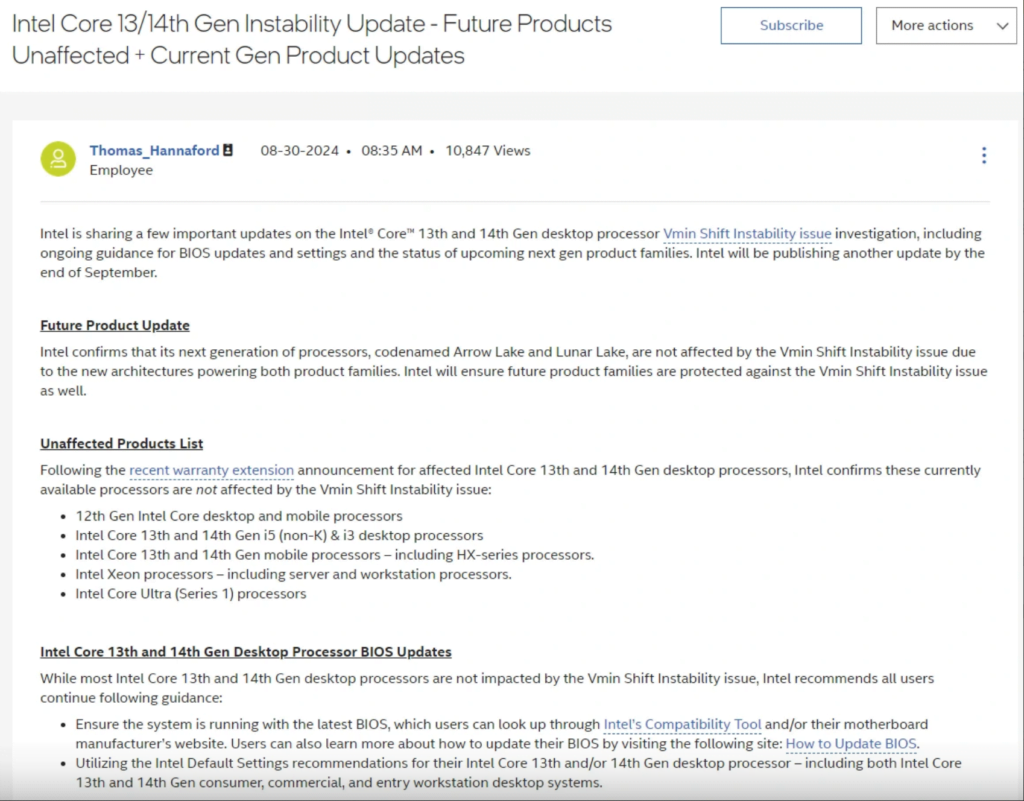Intel has recently announced that its upcoming Core Ultra 200 Lunar Lake and Arrow Lake processors will not be affected by the Vmin Shift Instability issue that has plagued its 13th and 14th generation CPUs. The instability issues with the 13th and 14th generation processors, particularly the Core i9 13900K and Core i9 14900K models, first surfaced in late 2022 and became more serious by early 2024. The problems were initially attributed to high operating voltage but were later confirmed by Intel to be stemming from a microcode algorithm requiring incorrect voltages for the processor.

To mitigate the issue, Intel recommends that all users, regardless of whether their systems are affected or not, upgrade their Intel motherboards to the latest firmware and use Intel’s Default Settings recommendations for CPUs. Additionally, motherboard manufacturers have started releasing BIOS updates that include the 0x129 microcode patch to fix the issue without impacting CPU performance, although the root cause remains unclear.
This instability has significantly impacted Intel, resulting in return rates for the affected processors that are 3 – 4 times higher than previous generations. This has led to increased consumer caution and some original equipment manufacturers (OEMs) considering temporary solutions such as reducing turbo clocks or switching to AMD Ryzen CPUs.
Intel’s assurance that the upcoming Core Ultra 200 Lunar Lake and Arrow Lake processors will not have these issues provides hope for the company to restore its reputation. However, Intel still faces other challenges, including financial difficulties and operational issues.
